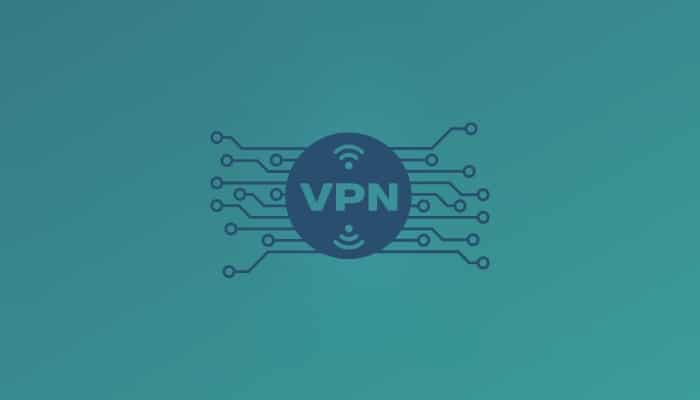Have you ever thought about all the different things a VPN can do?
In our digital world, there are a lot of misconceptions floating around about what VPNs can and can’t do.
Despite their growing mainstream popularity, a number of myths persist when it comes to understanding these services properly.
Common Misconceptions
We’re here to clear the air by taking on nine of the most widespread VPN myths to help you better understand what to expect from VPN usage.
Our detailed guide will give you a full breakdown of VPNs – separating fact from fiction on their features and limitations.
Myth #1: VPNs Make You Completely Anonymous
While VPNs are a great tool for boosting online privacy, they don’t guarantee complete anonymity on their own.
A VPN hides your IP address – which is a big win for privacy. However, advertisers and websites may still potentially track you through cookies and digital footprints.
For maximum anonymity, it’s wise to combine a VPN with other privacy measures, like anti-tracking browser extensions and cautious browsing habits.
This combination of privacy tools will maximize your ability to protect your data and stay anonymous while browsing the web.
Myth #2: VPNs Slow Down Your Internet Speed Drastically
While encrypting your data through a VPN can lead to some minor slowdowns, today’s technology has made this issue much less noticeable.
Any speed dip from using a quality VPN service tends to be quite small. For users who value robust security more than split-second page loading, making this modest trade-off is an easy decision.
Myth #3: All VPNs Are the Same
Many people wrongly believe that all VPNs are the same, providing a comparable quality of encryption and enforcing similar privacy policies.
However, modern-day VPNs can differ hugely in their encryption strength, privacy policies, and overall security.
The most important thing is to research and compare options based on your specific needs.
Myth #4: Using a VPN is Illegal
In most countries, VPN use is often legal and even recommended for online privacy.
However, some nations do restrict or ban VPN services for monitoring or censorship purposes.
It’s crucial to check your local laws first, as using a VPN unethically could potentially break regulations in a few places.
To avoid inadvertently breaking any laws, it’s important to research and understand the legality of using a VPN in your area.
That way, you can take advantage of this privacy tool while staying on the right side of the law.
Myth #5: VPNs Can Replace Antivirus Software
VPNs and antivirus programs serve different cybersecurity needs.
A VPN keeps your internet traffic secure and private, while an antivirus protects your devices from malicious software, like viruses and hackers.
Used together, they create a powerful punch against the various online threats we all face these days.
With a VPN and antivirus combo, you get comprehensive protection for your devices and network activities.
Myth #6: Free VPNs Are Just as Good as Paid Ones
Free VPN services sometimes cut corners when it comes to speed, security, and privacy.
Some even make money by showing you ads or selling your data to third parties. On the other hand, paid VPN providers generally offer a higher quality service.
This usually means better security features, a strict no-logging policy to protect your privacy, and more reliable internet connections.
This highlights the value of investing in a reputable VPN provider for dependable online privacy protection. You can read more about it at https://surfshark.com/vpn.
Myth #7: VPNs Are Too Complex for Average Users
Modern VPNs have become extremely user-friendly, with simple setup processes.
You don’t need to be a tech expert to take advantage of VPN protection and enhance your online privacy and security.
VPNs have been made accessible to a much larger audience, without much technical knowledge needed to shore up security and privacy online.
Myth #8: VPNs Are Only for Tech Enthusiasts
VPNs are an essential privacy and security tool for everyone who uses the internet – not just tech enthusiasts.
Whether you’re shopping online, using public WiFi, streaming videos, or just browsing, a VPN keeps your activities safe and private from hackers, snoops, and other threats.
No matter how you use the internet, a VPN provides invaluable protection that everyone can benefit from.
Myth #9: You Don’t Need a VPN at Home
Even at home, your internet connection isn’t fully secure from threats. Hackers can still try to access your activities.
A VPN adds an important layer of protection. It encrypts your traffic to block hackers on any network, including your home Wi-Fi.
It also prevents your internet provider or advertisers from tracking your online habits.
Using a VPN ensures your home browsing activities stay private and secure, safe from prying eyes – even on your trusted home network.
The Key Takeaway
There are a lot of myths around VPNs and their abilities. The reality is, a good VPN is an excellent privacy tool for anyone – tech experts or casual internet users.
Combining a trustworthy VPN with antivirus protection is the ideal combination for safe, private browsing.
But the most important thing is to understand the real online risks out there, and how to properly protect yourself.















Comments